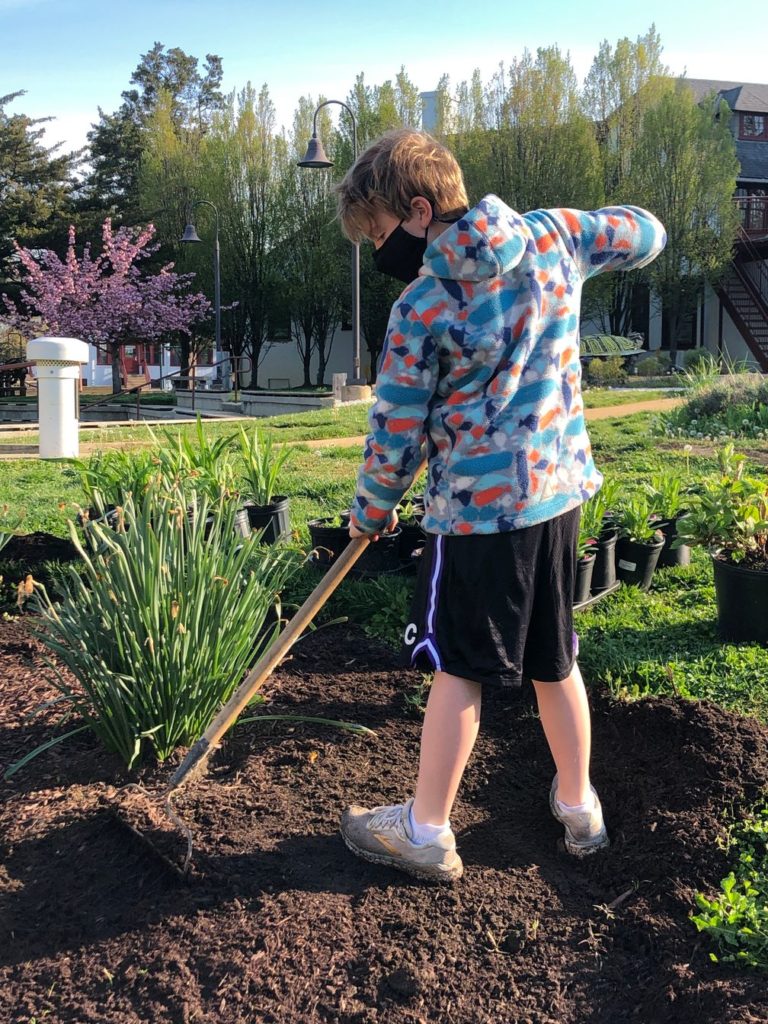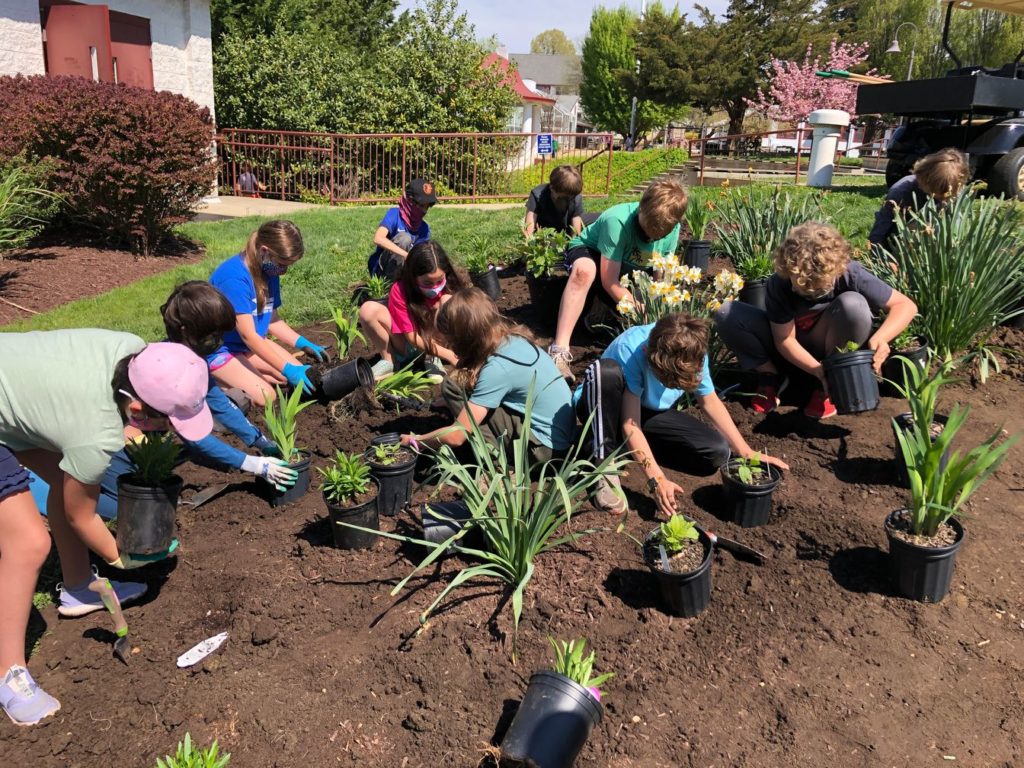Grant Program Helps Gardens Grow






By Kimberly Kweder
In the warmer months, the “Meadow” at Key School in Annapolis is gleaming with black-eyed Susans, tickseed, butterfly weed and other Maryland native plants that flourish outside the classrooms where 39 fourth graders watch the results of their labors of love grow tall and bloom.
“They are so incredibly proud of themselves,” says Carol Mahoney, Head of Makerspace at the school.
Key School’s Meadow found life thanks to a 2021 Unity Gardens grant. The nonprofit is now accepting applications for its spring round of garden grants.
Unity Gardens is based in Anne Arundel County and supports the building of community partnerships through its grassroots grants program. Each year since 2003, Unity Gardens has provided grants to schools, faith-based organizations, homeowners associations, scout troops, and other nonprofits that require plant funding for their conservation landscaping plans. Last year, the nonprofit funded 22 projects ranging from Edgewater to Glen Burnie.
Three classes helped write the grant request to create the Meadow. The students wanted to promote biodiversity with native plants, bees, birds, and enhance the campus aesthetically, too, says Mahoney. In the application, the children wrote that plants will help to impact muddy areas, provide more oxygen, bird watching, and give animals better nutrition by providing native plants. Each class had its own winning design.
“The kids were like ‘We can plant plants?!’ They were so into it—almost teary-eyed. They were all in it at the beginning,” Mahoney said.
Mahoney says the garden is an educational outlet, too. Classes can use the garden to cover a life-cycle topics unit, study plant measurements, create scientific drawings, and create seed paper with logos of the UN sustainable goals.
“We believe that each common citizen is a first step to environmental change,” says Joni Miller, executive director of Unity Gardens. “Part of our mission is to help people understand what plants are good for the environment,” she added.
Before becoming executive director in 2019, Miller was a board member and an active Anne Arundel County Master Gardener.
Other grantees have built rain gardens to address flooding and standing water issues. Recipients use the grants to address water problems, like flooding or erosion, while others use the project money for habitat restorations, attracting pollinators. Funds may be used to purchase native trees, shrubs, grasses, and perennials.
One previous recipient, the Helen Avalynne Tawes Garden, was a collaboration of Master Gardeners, Department of Natural Resources, Unity Gardens, and the Friends of Tawes Garden. The grant helped fund a redesign of the plant mural garden, which depicts plants native to Maryland.
Unity Garden grants provide an opportunity for places of worship to perform community service and integrate their religious beliefs with environmental stewardship. One such example is St. Andrew by the Bay Parish’s project, which planted perennials in its Woodland Edge Restoration project. The grant provided additional funding for wildlife habitats, replacing invasives, beautifying the parish grounds, and engaging parishioners in planting, caring for, and appreciating native plants.
In its 19 years, Unity Gardens has awarded $500,000 to more than 200 organizations. Applications for spring grants will be accepted until March 1 and the nonprofit is doubling the grant amount. Grants up to $1,000 will still be funded, but Unity Gardens will also fund several larger projects up to $3,000 each. Miller said that the increased funding is helpful for places like schools and churches that want to do broader projects with more resources and volunteers.
“If there are nonprofit groups that have an idea, we’re willing to talk by phone and see what they have in mind to help advise next steps,” she said.
Learn more: unitygardens.org.
